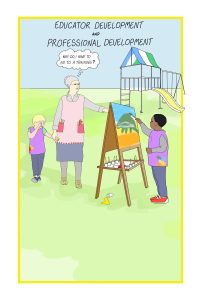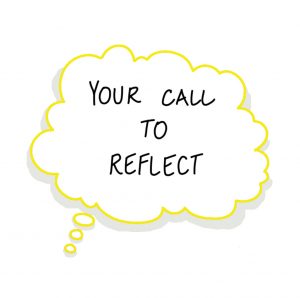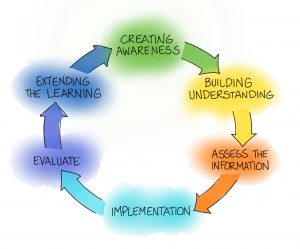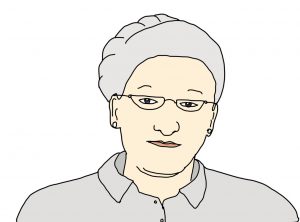1

Learning Objectives
Objective 1: Recognize the career stages of a professional in early care and education.
Objective 2: Articulate the value of ongoing professional development
As a young professional I thought I had the best job ever! I was getting paid to play with children—how cool was that!? I would read stories and play dress up with preschool children in the morning, go to community college classes in the middle of the day, and end my day playing dodgeball in an afterschool program. BEST JOB EVER! And then my supervisor gave me a 6 month evaluation and said that I had a lot of great qualities but I needed to develop some key skills (classroom management, being seen as an authority figure, etc.). I was crushed! I thought things were going so well—after all, I and the children were having fun. So we created a plan to have me go to some professional development training, and after my first Saturday I was hooked! For the first time, I saw an opportunity to make early childhood education (ECE) my professional career. I immediately went into my counselor’s office and changed my major from business to early childhood education. Then I really started having fun at college—as well as work!
Does my story sound familiar? Many of you probably felt as I did at some point in your professional journey. As educators, we understand the value of ongoing learning. We watch children practice, learn, and grow every day.
It is important to also note that not all educators will proceed through all stages. Some choose the role they love most and stay in that role throughout their career, while others move around, trying out different roles. The career of each professional can look very different from another. That is part of what makes working in the field such a diverse and amazing experience!
Before we start with the stages of an educator’s growth, we think it is important to note that educators enter the field in a variety of ways. Here are some of the paths taken:
- 4-year college or 2-year degree or certificate program.
- Entering the field from another profession such as special education or classroom assistant in a K-12 setting.
- Opening your own business as a family child care provider in order to care for your own children and others in your community.
- Working at a Head Start.
- Babysitting or working with children in a high school program and getting a job or starting school after high school in the field and figuring out where you want to go next.
However you got here, you made choices along the way and here you are! Caring for and educating other people’s children is a journey—not a destination. It is your journey and your choices that will propel you as you decide where you are and what next steps are best for you. Let’s define career stages and offer some words of wisdom for you—wherever you are.
 What started you on the path to working with children? What draws you to this career? What do you love about working with children? Where do you see yourself in five years?
What started you on the path to working with children? What draws you to this career? What do you love about working with children? Where do you see yourself in five years?
Career Stages
Pre-service is the stage in an educator’s career where they have not started working with children and families yet. In this stage you may be taking courses toward a degree or certificate, or you may be ready to walk into the classroom for the first time as an assistant. For many educators, the pre-service stage is a mix of working with children and pursuing a degree or participating in community-based training.
Characteristics of Pre-service Professionals:
- You are not quite sure if you are ready/what you got yourself into.
- You are enthusiastic and looking to have fun.
- You don’t know what you don’t know.
- You know what you don’t know and you are ready to learn.
- You are ready to start applying the things that you know.
Educators in the Pre-service stage need external support to apply their knowledge and process what the “reality” of working with children really looks like. Pre-service educators need guidance for taking care of themselves so they don’t burn out and may need help navigating building relationships with the adults that come with working with children. 😊
The Survival stage is a roller coaster of emotions and behaviors. Educators in survival mode are beginning to apply what you know and have learned as you begin your work with children. Everything that you learned and thought you knew takes a backseat to the immediate actions needed to manage the children and tasks in front of you. You are still excited and realizing that working with children is hard and draining and exhilarating all at the same time.
Characteristics of Survival Professionals:
- Your fight or flight brain kicks in and demands to pay high alert attention to everything.
- You may feel like you are never going to “get” it or that this is NEVER going to “work”.
- You may feel overwhelmed at the “other” tasks that come with working with children.
- You may feel like you don’t have control of the children in your program.
- You may feel locked into struggles with children or other team members.
- You may not feel confident in your abilities; particularly when talking to families.
- You may struggle to see yourself as a professional
Educators in the Survival stage need reassurance and individualized supports. They need to see that they are progressing and that there is an “end” in sight for the survival stage. Pairing professionals in the Survival stage with a veteran team member who can provide one on one advice and coaching. You can also provide these professionals with extra breaks, opportunities to talk, and lots of chocolate.
Developing Skills is the stage where things start to come together. Educators in this stage are practicing, making mistakes, learning, and experimenting. They are understanding what their skills are and increasing their competency.
Characteristics of Developing Skills Professionals:
- You are looking for and participating in professional development that helps you solve problems.
- You are hands on and trying new things.
- You are confident.
- You are both sure and unsure of yourself.
- You think about the children in your care and your coworkers, even when you are not with them.
- You are setting routines and teaching others how to do what you need them to do.
Educators in the Developing Skills stage should be supported through opportunities to practice, make mistakes, and get coaching. They need recognition for their efforts and opportunities to participate in professional development. Support through one-on-one meetings, frequent check-ins, feedback, and coaching are very beneficial.
In the Mastery stage, educators have developed their competencies and may be looking for new challenges. For some that may mean administration positions, for others, mentoring or providing professional development.
Characteristics of Mastery Professionals:
- You know it is not about you (it never was, but you were inwardly focused for the first three stages).
- You feel confident in your skills.
- You feel like you have “arrived” and can take time off from further professional development.
- You seek professional development opportunities that are focused on theory, practice, or a very narrow topic (ex: supporting children with ADHD).
- You can get stuck in “the way I have always done it” and not look for opportunities to stay current on issues or child development.
- You may feel bored and are looking for a challenge.
- You may feel isolated.
Educators in the Mastery stage may need opportunities to share their knowledge and expertise. This could be through coaching or developing others, presenting training, or participating in contributing to the field outside of their work. Professionals in the Mastery stage should be supported through giving outlets for sharing, providing them with feedback or encouraging them to continue their professional growth.
 What stage would you say you are at in your career? What can you do to support your development to the next stage? What can others do to support you?
What stage would you say you are at in your career? What can you do to support your development to the next stage? What can others do to support you?
Professional Development Cycle
Whether you are new to education or have been working with children and families for many years, all educators go through the same cycle for professional development. This 6-part process includes:
- Creating Awareness – what do you want to know more about? Where can you go to get training or information?
- Building Understanding – expand your knowledge of the topic you are interested in and learn what the big ideas are.
- Assess the Information – is this something that will help you in your practice? How will you implement it? What supports or resource might you need?
- Implementation – plan, prepare and implement the new knowledge. Practice, refine, and practice some more.
- Evaluate – Did your learning have a positive impact? Is there more information you need? Will you integrate the new learning into your habits and routines?
- Extending the Learning – What else do you want to know about the topic? Are there other resources available? How can you further increase your knowledge? (See create awareness)
 Successful ECCE professionals engage in a cycle of reflective practice that increases their awareness and continues their development. This development cycle can be seen in all career stages except Survival. The reason? Because when you are in survival mode you are unable to learn and retain new information. Your brain is quickly evaluating and deciding on the issue or problem it is currently facing.
Successful ECCE professionals engage in a cycle of reflective practice that increases their awareness and continues their development. This development cycle can be seen in all career stages except Survival. The reason? Because when you are in survival mode you are unable to learn and retain new information. Your brain is quickly evaluating and deciding on the issue or problem it is currently facing.
Reflective Practice & Professional Development
Reflective practice and professional development go hand in hand! Reflective practices are when you think back on how a particular project, action, task, or day went and you identify what went well and what you might want to do differently in the future. Reflective actions can include:
- Taking time each day to reflect on something that worked really well or not so well.
- Sharing your experiences with others in the field.
- Keeping a journal or log of best practices in your classroom as well as challenges.
- Determining what you could have done differently.
- Seeking out a mentor or coach to help you sort through your reflections and identify areas for continued growth
 Reflect on something that is going well for you right now. What evidence supports your thought that it is going well? How is this having a positive impact? What steps can you take to act with intention to continue success?
Reflect on something that is going well for you right now. What evidence supports your thought that it is going well? How is this having a positive impact? What steps can you take to act with intention to continue success?
Responsibility for Learning
No matter how long you have worked in ECE or what your role may be in the classroom or program, as a professional you have a responsibility to ensure that you have the education needed to perform your job in the best way possible. This means participating in professional development that prepares you for the position you are or will be in. Engaging in ongoing professional development continues your education about topics relevant to your work with children and families.
 Ongoing Professional Development
Ongoing Professional Development
- Ensures you stay current with the latest research.
- Provides you with opportunities to create awareness about what you don’t know.
- Assists you in achieving your career goals.
- Engages you with others in the field.
- Provides you with opportunities to learn and explore diverse topics, perspectives, and contexts.
Professional Development of Others
Your leadership role may involve supporting the professional development of someone else. From creating individual professional development plans to providing professional development for groups, there are different methods for supporting others’ ongoing professional development.
The following are the most common forms of professional development:
Training is a learning experience specific to a topic and related set of skills or dispositions, delivered by a subject matter expert with adult learning knowledge and skills.
Technical Assistance (TA) is the targeted and customized support by a subject matter expert to develop or strengthen processes, knowledge application, or implementation of services by professionals.
Mentoring is a relationship-based process between people in similar professional roles, the mentor, provides guidance and example to the less-experienced mentee. Mentoring is intended to increase an individual’s professional capacity, resulting in greater effectiveness.
Coaching is a relationship-based process led by an expert with specialized and adult learning knowledge and skills. Coaching is designed to build capacity for specific professional skills and is focused on goal-setting and achievement for an individual or group.
Professional Development Advising ) is a process through which an advisor offers information, guidance, and advice about professional growth, career options, and pathways.
Peer-to-Peer TA fosters the development of relationship-based learning and support communities among individuals, often in like roles. Peers have developed tools and strategies that can be shared with their colleagues.
Job-Embedded Professional Development (JEPD) refers to educator learning that is grounded in day-to-day teaching practice and is designed to enhance teachers’ content-specific instructional practices with the intent of improving student learning.
Reflective Supervision is the regular collaboration between staff member and supervisor where the thoughts, feelings and experiences of the staff member are the focus of improving skills and competencies.
In conclusion, you can see there is a wide range of professional development delivery methods. Each method provides the learner with specific supports and opportunities based on a number of factors including career stage of the learner, career stage of the leader, resources, context, and type of desired outcome.
Example
As a leader, you will need to evaluate these factors to determine the best method for delivering learning for individual staff members as well as the team as a whole. While ongoing professional development hours are often a requirement for licensure or quality standards, they are not the only method for increasing knowledge and competency of staff.
Remember, the best methods for ensuring staff increase their skills/competencies through professional development is to work collaboratively for a mix of modalities that allow for knowledge transfer, practice, feedback, and behavior change. Learning needs to be supported on a regular basis and should become a regular part of your organization’s culture. As a professional, it is up to you to continue your professional growth and development as you move through the stages of your career. Learning can be an ongoing journey full of joy and discovery that invigorates and increases the quality of your daily practice.

